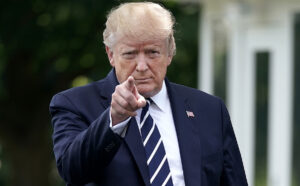
US President Donald Trump has said that representatives of his administration will not participate in the G20 summit, which will take place on November 22-23, 2025, in Johannesburg, citing “violations of the rights” of white South Africans. He announced this on the social network Truth Social, and his position has been reported by leading publications.
According to Trump, holding G20 meetings in South Africa is a “disgrace,” and the country’s authorities allow the murder and illegal seizure of land from Afrikaners. The South African side called such statements unfounded and “regretted” the US decision.
South Africa will chair the G20 in 2025, with a leadership meeting scheduled for November 22-23 in Johannesburg.
The Trump administration has previously signaled a tough stance on South Africa, including public statements on the situation surrounding white farmers, which have been criticized by the expert community and South African officials.
boycott, G20, SOUTH AFRICA, SUMMIT, US
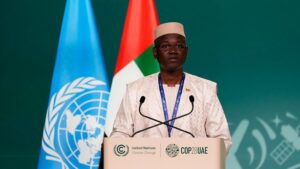
There is discord in South Africa’s unity government, with Ukraine as the trigger within the new coalition with no foreign policy cohesion.
South Africa has experienced a number of firsts this year. Most notably, a Government of National Unity (GNU) came to power. It is comprised of the once dominant African National Congress (ANC), the former opposition Democratic Alliance (DA) and several smaller parties. The coalition is the first of its kind in modern South Africa.
But barely four months after it was formed, the main coalition partners are clashing over Ukraine. Home Affairs Minister Leon Schreiber triggered the discord when he signed a reciprocal agreement with Kyiv for visa-free travel for diplomatic passport holders.
The DA politician called Ukraine a “valued ally and friend” and explained that he was looking forward to seeing President Cyril Ramaphosa attach his signature. What followed his made it obvious that Schreiber had acted on own initiative.
A spokesman for Ramaphosa, who heads the GNU and the ANC, said: “It is unclear how the minister can announce the signing of an international agreement without prior formal approval.”
That statement by Vincent Magwenya has sparked speculation of even more critical reactions from the president behind the scenes.
The two leading coalition partners are known to have different ideas on foreign policy.
“There is no cohesion between the ANC and DA on foreign policy issues, there are no discussions, and so the differences will come to light,” political analyst Daniel Silke told DW.
The two parties are still tussling as a test of the extent to which they can still differentiate themselves from each other, he said.
Silke believes the timing of the announcement on the visa deal with Ukraine undermines the historical ties between the ANC and Moscow that predates Russia’s war in Ukraine.
There was no question that Ramaphosa would traveled to Russia for the BRICS summit . Russia was a “valued ally” of South Africa, Ramaphosa. Schreiber would later use those exact words to refer to Ukraine.
Ramaphosa’s warm relationship with Russian President Vladimir Putin. It has earned him sharp criticism from DA Chairman John Steenhuisen. The DA, according to Steenhuisen, does not recognize an authoritarian regime, especially one that is involved in a controversial military conflict, as a legitimate ally.
No DA cabinet minister accompanied Ramaphosa to the BRICS summit in Kazan.
In an interview with the South African Broadcast Corporation (SABC), political analyst Lesiba Teffo found no reason to fuss over the remarks by the DA chairman.
“This is no surprise to me, the DA has never taken a pro-Russian position in its history to embace Russia, the party takes it cues mainly from the West, the United States,” Teffo said.
The DA is seen as business-friendly and active in engaging Western governments. The ANC, on the other hand, pursues closer relations with its partners in BRICS countries — Russia, Brazil, India and China, and, more recently, Ethiopia, Egypt, Iran and the United Arab Emirates (UAE).
The ANC has applied a policy of non-alignment since it entered government after decades as an apartheid liberation movement.
The ANC and the DA need to show more maturity, according to Teffo. “They simply have to make peace with the fact that they have to work together.”
In principle, the ANC supports the agreement with Ukraine — the previous ANC all-party government had even initiated the plans. The presidential spokesperson, Vincent Magwenya, admitted that talks with Ukraine on the visa waiver began in 2020, but there were delays due to the pandemic.
“The agreement will facilitate the travel of our high-ranking officials participating in the talks on the peace formula,” he said. The imminent signing had also been announced on the president’s website before Schreiber made the move public. However, some agreements with Ukraine were still to be finalized before the planned signing. Ukraine had wanted to obtain visa waivers for all its citizens.
Moletsi Mbeki, the Chairman of the South African Institute of International Affairs (SAIIA) and brother of former President Thabo Mbeki, sees the discord within the GNU as somewhat exaggerated.
In an interview with broadcaster Newzroom Afrika, Mbeki said cabinet ministers must adhere to an existing protocol of communication and announce decisions via official government channels, whether it suits the DA or not.
Daniel Silke, the political analyst, believes that the controversy over Ukraine reflects a general dissatisfaction within the GNU. But the alliance is expected to pursue a coherent national foreign policy.
The ANC appears annoyed that what has been a national policy is now being questioned by the DA.
“In terms of the coalition agreement, the ANC expected that, as the larger party, it would continue to set the foreign policy direction in South Africa, which is clearly much more Russia-friendly than the DA’s policy,” Silke told DW.
Disagreements over policy issues within the GNU are likely to continue beyond the honeymoon period of the ANC-DA led coalition, according to Silke.
South Africa is in a deep economic crisis with high unemployment, price increases, recurring power cuts and a desolate infrastructure. The outlooks of the ANC and the DA have diverge often when solutions are discussed.
“Foreign policy can create tensions, but the GNU will not fail because of this,” said Silke.
Source: https://www.dw.com/en/ukraine-throws-up-cracks-in-south-africas-unity-government/a-70648424
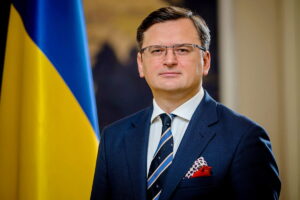
On Monday, November 6, Ukrainian Foreign Minister Dmytro Kuleba will pay an official visit to South Africa, which will be the first visit of the Ukrainian foreign minister to the country since 1998.
According to the website of the Ministry of Foreign Affairs of Ukraine, Kuleba will hold talks in Pretoria with the Minister of International Relations and Cooperation of South Africa, Naledi Pandor, the key topics of which will be the implementation of the Ukrainian peace formula, intensification of efforts to return Ukrainian children illegally taken from the temporarily occupied territories to Russia, ensuring food security in Africa, increasing bilateral trade, and intensifying cooperation between Ukraine and South Africa in international organizations.
The program of the visit includes a lecture by the Ukrainian Foreign Minister to students and professors of the University of Pretoria, as well as the opening of the virtual reality exhibition “Living the War” about the consequences of Russian aggression against Ukraine at the Javett Center for the Arts at the University.
The Ministry of Foreign Affairs notes that the visit to South Africa will be Kuleba’s fourth trip to Africa. The first one took place in October 2022 (Senegal, Côte d’Ivoire, Ghana and Kenya), the second in May 2023 (Morocco, Ethiopia, Rwanda, Mozambique and Nigeria), and the third in July 2023 (Equatorial Guinea and Liberia).
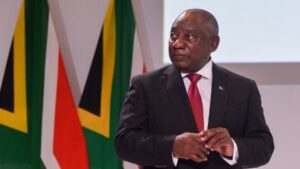
South African President Cyril Ramaphosa will visit Kiev on Friday as part of his participation in the African peacekeeping mission, where he will meet with Ukrainian President Vladimir Zelensky to discuss a “peace plan” to end the war, the South African presidential press office reported.
Ramaphosa reportedly visited (Warsaw) Poland on Thursday, June 15, where he met with President Andrzej Duda.
The South African president is now on his way to Kiev for talks with President Zelensky. The mission includes leaders from South Africa, Zambia, Comoros, Congo-Brazzaville, Egypt, Senegal and Uganda as representatives of a continent that has experienced the adverse economic effects of war.
Earlier, the South African president held talks with Russian President Vladimir Putin, President Zelensky, Chinese President Xi Jinping and UN Secretary-General António Guterres.
Ramaphosa wants to make efforts to promote a “peaceful” process to resolve the Russian war against Ukraine. On Saturday, he and his delegation will arrive in Moscow for talks with Putin.
EGYPT, KIEV, PRESIDENT, SOUTH AFRICA, ZAMBIA, Сенегал, Уганда

On March 28, 2023 the Henley & Partners company provided the annual report on prosperity of Africa.
According to the Africa Wealth Report 2023, published by Henley & Partners in partnership with New World Wealth, the total amount of private wealth currently owned by individuals on the African continent is USD 2.4 trillion. This figure is expected to rise by 42% over the next 10 years.
South Africa, Egypt, Nigeria, Kenya and Morocco are the “big five” in terms of concentration of private capital, together they account for 56% of all wealthy people (HNWI) of the continent and more than 90% of its billionaires. There are currently 138,000 HNWIs in Africa with a personal net worth of USD 1 million or more, as well as 328 cent-millionaires with a net worth of USD 100 million or more, and 23 dollar billionaires.
Despite a challenging past decade, South Africa still has at least twice as many wealthy people as any other African country and 30% of the continent’s cent-millionaires. Egypt leads in the number of billionaires, while Mauritius boasts the highest wealth per capita in Africa at USD 37,500, followed by South Africa at USD 10,880 and Namibia at USD 10,050.
The fastest growing markets in the world
Andrew Amolis, head of research at New World Wealth, notes: “Africa is home to some of the fastest growing markets in the world, including Rwanda, Mauritius and the Seychelles, where wealth growth has been 72%, 69% and 54% respectively over the past decade.” Mauritius is expected to show strong private capital growth of 75% over the next decade (until 2032). This would make it the fourth fastest growing country in the world for the period in terms of millionaire growth, behind Vietnam, India and New Zealand.
richest cities in africa
4 of the 10 richest cities in Africa are in South Africa: Johannesburg has the largest number of millionaires in Africa (14,600), Cairo is in second place with 7,400 ultra-wealthy residents, followed by Cape Town (7,200). Lagos (5,400) is fourth, Nairobi (4,700) is fifth. Two other South African cities, Durban (3600) and Pretoria (2400), are ranked sixth and eighth respectively.
Namibia – the new star of Africa
Namibia is predicted to become one of Africa’s fastest growing markets, with the ultra-rich projected to grow by more than 60% by 2032. By December 2022, the country’s total investment wealth was USD 26 billion, and the number of dollar millionaires was 2,100 people. Launched in March 2023, the Residential Residency (RP) offer by investment could attract even more wealthy investors from around the world.
Investment migration is an innovative financial instrument
Dominique Volek, head of private banking at Henley & Partners, notes that more and more African countries are aiming to attract wealthy people through the provision of residence permits and citizenship by investment. These direct investments have the potential to seriously transform the economy: “As wealth grows on the continent and countries realize the benefits of promoting economic progress, we expect investment migration in Africa to continue to gain momentum in the coming years. This applies not only to demand in the domestic market on the part of investors from African countries, but also on the supply side. More and more African countries are looking to launch their own investment migration programs to increase the influx of both capital and talent.”
About the Africa Wealth Report 2023
The Africa Wealth Report 2023 is published annually by Henley & Partners in association with South African think tank New World Wealth. The study provides a comprehensive analysis of private equity across the continent, including trends in high net worth consumption, the luxury market and wealth management in Africa.
For more than a decade, New World Wealth has been tracking the wealth movements and buying habits of the world’s richest people. The firm’s research covers 90 countries and 150 cities around the world. It uses a model to determine wealth levels in each country with key wealth parameters from HNWIs own database of over 150,000 contacts, stock market and real estate statistics, and household income, savings and debt statistics in each market. The New World Wealth model also displays the historical growth trends of wealth in each country, taking into account fluctuations in the exchange rate against the US dollar, as well as movements in the stock market and real estate prices.
Read the report
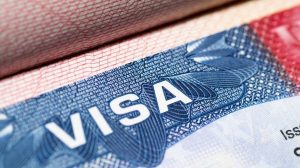
From August 14 the Ministry of Foreign Affairs of Ukraine begins the centralized registration of Ukrainian electronic visas (e-Visa) for citizens of India, South Africa and the Philippines, the press service of the Ministry of Foreign Affairs reports.
“The Ukrainian e-Visa is issued for trips to our country for business, private, tourist purposes, for medical treatment, for activities in the field of culture, science, education, sports, as well as for representatives of foreign media,” the statement said.
So, to apply for an electronic visa, you need:
– register on the MFA web platform https://evisa.mfa.gov.ua/ (available from August 14);
– fill in the application form online, upload a photo and scanned copies of documents (passport, invitation, etc.), pay the consular fee with a bank card;
– receive a ready e-Visa by e-mail (sent in pdf format).
It is reported that to enter Ukraine, a person needs to print the e-Visa and show it with the passport to the border authorities of Ukraine at the checkpoints across the state border.
“At the same time, the standard procedure for issuing Ukrainian visas in foreign diplomatic institutions of Ukraine still remains in force for citizens of these states,” the ministry reported